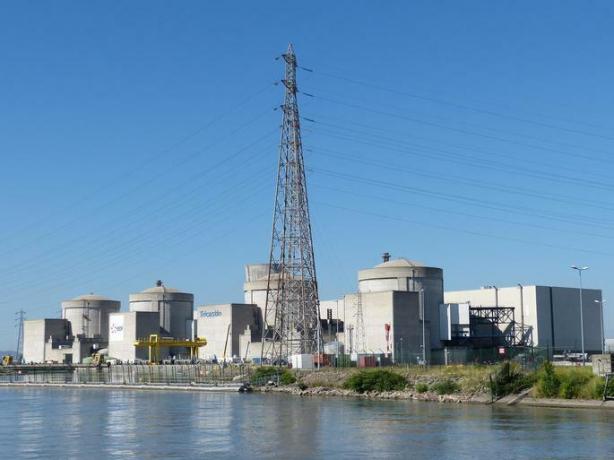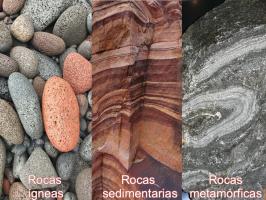7 advantages and 7 disadvantages of nuclear energy
Nuclear energy is the energy contained in the nucleus of atoms. This is made up of protons (particles with a positive electrical charge) and neutrons (particles without an electrical charge). When the atomic nucleus is transformed, a nuclear reaction occurs with the release of a large amount of energy.
All activities of human beings depend on energy. In fact, energy has made possible technological advances that have improved the quality of life for human beings. The demand for electrical energy is increasing all over the world.
One of the sources of electricity in the world is nuclear energy generated in nuclear plants. The resources to power nuclear power plants release energy in the form of heat. This heat is used to heat water, which is then used to drive large turbines and generate electricity.
Let's see then what are the pros and cons of nuclear energy.
Advantages of Nuclear Power

1. Nuclear reactions generate more energy than chemical reactions.
There are two ways to obtain energy from the nucleus: by fission or by fusion. Nuclear fission is the partitioning of the nuclei of heavy atoms, giving rise to lighter atoms. Fusion is the process where two low mass number atoms come together to form a higher mass number atom.
In either process, the resulting nuclear configuration releases a certain amount of energy, much greater than the energy of chemical reactions that occur when fuels are burned fossils.
2. Reduce dependence on oil and gas imports
Oil and natural gas, the main conventional sources of energy, are becoming scarce and their prices are rising. In addition, they are found in certain regions and not all countries have these resources.
For this reason, many countries depend on others to obtain the natural resources that they do not possess. With the construction of nuclear plants, each country could launch its activities independently.
3. Electricity generated by nuclear power does not release greenhouse gases
When fossil fuels are burned, gases such as carbon dioxide are released. These gases are the main cause of climate change, due to the greenhouse effect they cause in the atmosphere.
Nuclear reactions do not emit gases that can pollute the air.
4. Available 24 hours a day, all year round
During the winter, the electricity generated by solar panels is seriously affected by the decrease in the collection of sunlight. There is also no power generated overnight. Wind, the other alternative energy source, also depends on local weather and geographic conditions.
In contrast, nuclear energy is not affected by weather conditions and is available throughout the year, day and night. This makes generating electrical power from nuclear power more reliable.
5. Operating costs are low
The cost of materials to power nuclear plants is relatively cheap. Uranium is cheaper and more efficient than fossil fuels; much less uranium produces more energy than the same amount of oil.
Also the maintenance of nuclear plants is less frequent.
6. Nuclear reaction does not require the presence of oxygen
This is an advantage because it allows hermetic sealing of the nuclear fuel, isolating it from the outside environment. This prevents contamination of the air by the radiation emitted in the reaction.
7. Nuclear reactors can be underground
This is an advantage in terms of environmental safety, since the earth around the reactor acts as a container for radiation.
Disadvantages of Nuclear Power

1. Generation and management of toxic waste
The main drawback in using nuclear fuel is the production of waste radioactive substances. In the process of generating nuclear energy by fission, the two atoms generated are radioactive, some of them lasting for many years. Managing this waste is expensive and dangerous.
2. Association between nuclear power and nuclear weapons
Nuclear plants are considered the first step in the development of nuclear bombs.
3. High initial financial investment
The installation of nuclear plants requires a strong investment of money, compared to conventional technologies for electricity generation.
This is mainly due to the excessive bureaucratic costs that some governments impose on this type of technology.
4. Potential risk of accident
The example of the Chernobyl accident in 1986 is the most referred to when concerns about the risk of nuclear plants arise. This type of accident can cause serious health problems, not only for humans, but also for animals and plants. However, this accident was caused by poor reactor design.
On the other hand, it is known that nuclear plants are vulnerable to natural phenomena such as earthquakes and tsunamis, after the incident in Fukushima (Japan) in 2011.
6. it is not renewable
Nuclear power sources do not regenerate once consumed.
7. Fear of radiation exposure
One of the concerns of residents near nuclear plants is contracting diseases from such close exposure to radiation.
This fear is unfounded, since under natural conditions we are constantly exposed to certain levels of radiation, which do not affect health. In fact, there is a region in Iran with natural radium reserves that emits 100 times more radiation, without thereby causing a higher incidence of cancer among its inhabitants.
You may also be interested in seeing:
- Solar energy: advantages and disadvantages
- Advantages and Disadvantages of Wind Power
- Renewable and non-renewable energy
References
Akyuz, E. (2017) Advantages and disadvantages of nuclear energy in Turkey: public perception. Eurasian Journal of Environmental Research 1: 1-11
DeGunther, R. (2009) Alternative Energy for Dummies. Wiley Publishing. NJ

